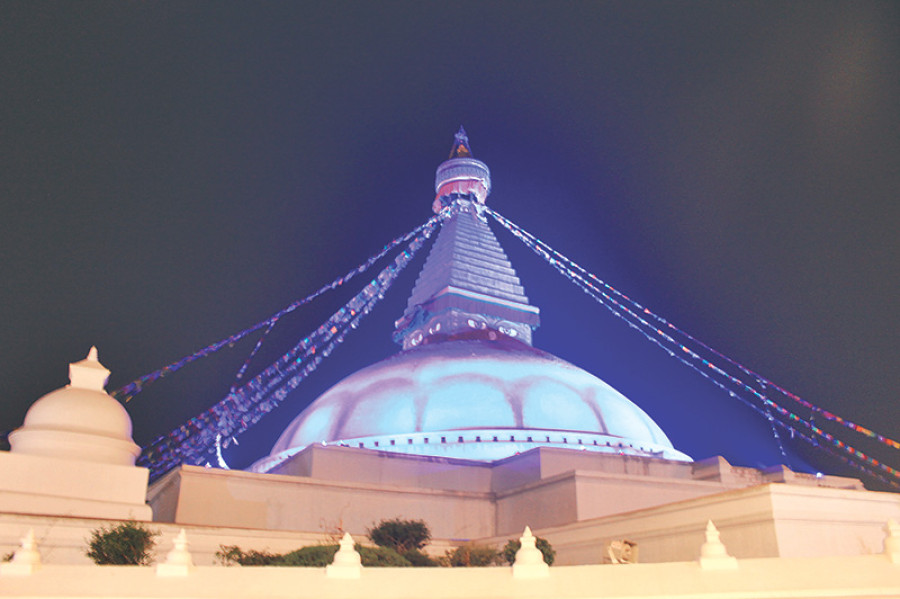Opinion
Uniquely human
Autism is being recognised as a serious disability thanks to the work of a group of parents with afflicted kids
Perhaps not many people in Nepal can recall a magnificent Hollywood movie screened exactly three decades ago. It is an incredible story of two brothers impersonated by two famous American actors, Tom Cruise and Dustin Hoffman. The former plays the role of a luxury car dealer in trouble with federal authorities while the latter acts as the elder brother who behaves “oddly” but has a great memory and amazing mathematics skills that are exploited by his younger sibling. The two spend a great deal of time together and slowly create a strong and unexpected bond.
The truth is that the character played by Dustin Hoffman was acting ‘strange’ because he was affected by autism, a neurological disorder that affects, on average, 20 out of 10,000 people. In Nepal, data related to cases of persons living with autism are patchy at best, but there are no doubts that thousands of children are living with this condition. Because it manifests only through particular behaviours, especially visible through abnormal social and communicative skills, many families, particularly in rural areas, are not even aware of the real reason behind their children acting “differently”.
I was small when the movie mentioned above, Rain Man, was released; my precarious and very limited understanding of disabilities was associated to the realm of physical conditions limiting or hampering the mobility of a person. Never would I have imagined that other forms of disabilities could exist and affect the lives of children like me.
Small yet strong
Till recently, autism was not even recognised as a form of disability in Nepal. But thanks to an incredible example of activism undertaken by a small group of bold parents, the condition is now legally recognised as a major form of disability that requires the full engagement of the state.
This group of parents whose children are affected by autism decided to take action on their own, pursuing win after win and slowly gaining the attention of the government. The group was established as the Autism Care Nepal Society (ACNS) on April 2, 2008. The foundation date was not casual, but rather a deliberate decision to celebrate, for the first time in Nepal, the World Autism Awareness Day that is a United Nations sanctioned day.
The last decade was key to raising awareness on autism all over the world. The United Nations General Assembly established April 2 as the official autism day on December 18, 2007, acknowledging that autism was a “lifelong developmental disability” affecting a high number of children globally. In 2012, the World Health Organisation confirmed Autism as a “global public health crisis”. Forward to 2018 and ACNS continues to be led by the same intrepid group under the leadership of Dr Sunita Amatya, and thanks to the equally important contributions of other parents, is acting as a real team.
Leaps and bounds
The organisation, despite huge financial challenges, has made great strides over the years, ensuring a wide range of services and activities to support families with autistic children not only within the Kathmandu Valley but all over the country. Indeed, one of the greatest successes of ACNS is its continuous and wide-ranging engagement with the Government of Nepal. The fact that the country’s Disabled People Rights Act fully acknowledges the existence of autism is an important victory for the bold parents of ACNS.
Among its many programs, ACNS operates a model school for autistic children out of its office in Kathmandu that offers tailor-made individual education plans for each of its students. Because children living with autism engage in repetitive behaviour and enjoy habitual patterns of life, the entire teaching process is specifically designed to support their learning process. That’s why ACNS acts as the only hub to train other teachers on autism, holding regular trainings throughout the year.
I came to know about autism when I was a small child thanks to a Hollywood movie. Nepalis can know about it thanks to the terrific passion of a group of parents that truly care for the future of their children.
If you happened to pass by Bouddha on April 2, you might have been surprised to see the stupa shining a distinguished and bright blue. That was the official colour of autism awareness—the colour of hope for thousands of children living in the country.
Galimberti is the Co-Founder of ENGAGE, an NGO partnering with youths living with disabilities




 9.89°C Kathmandu
9.89°C Kathmandu









